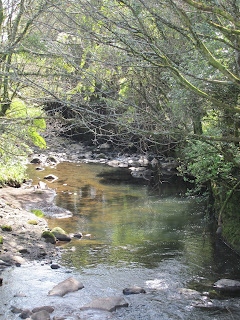How Reflection Improves My Teaching Practice?
“We do not
learn from experience…. We learn from reflecting on experience” John Dewey.
Thoughtful
reflection is a part of every day. 50 minutes to work and 50 minutes home gives
me opportunities to improve my practice.
I work
through lesson planning that did not achieve the goals I had set. I think about
the student who I observed who has more socks than shoes under his feet. I consider the disengaged student and wonder
what is going on in their life that is causing them to come in day after day
and engage minimally in my programme.
One of the
things I don’t do well is write down reflections. When I write reflections,
usually in my plan book, I note that I am repeating some of the issues day
after day that I have observed, or that I have not come up with a sustainable
change that I can make to my practice. This issue will be a major focus for
2018 as I believe that spending more written time at the end of the day will
have the biggest effect on student achievement that I can make.
My mobile reflections give me the time to
change my practice such as introduce different games e.g 20% time in Year 10. How I can make the best of the technology
rotation and make it work for our department as we have sacrificed quite a bit
of skill development, in order to meet the needs of the technology
curriculum? How can I achieve more indepth,
higher quality work out of my Year 13 students?
I use the
gibbs-cycle of reflection method in my Deaning practice when I am dealing with
students in a restorative conference situation.
I always think if I come across the situation again how can I challenge
the student not to repeat their mistakes?
I think about what really caused that situation? How can I cut off at the pass the incidence
of social medial use?
Zeicher and
Liston (1996) detail five different levels of reflection that occurs during
teaching. During class after instruction I am able to rapidly reflect when I
determine who is on task.
Those who are
not engaging in the learning give me an opportunity to repair any
misunderstanding. At the time of the
preparation of the next lesson I would review the results of my rapid
reflection and plan to include strategies that will reduce the incidence of
negative rapid reflection.
Zeichner,
K.M. and Liston. D.P. (1996) Reflective Teaching: An Introduction. Lawrence
Erlbaum Associates Publishers.




Comments
Post a Comment